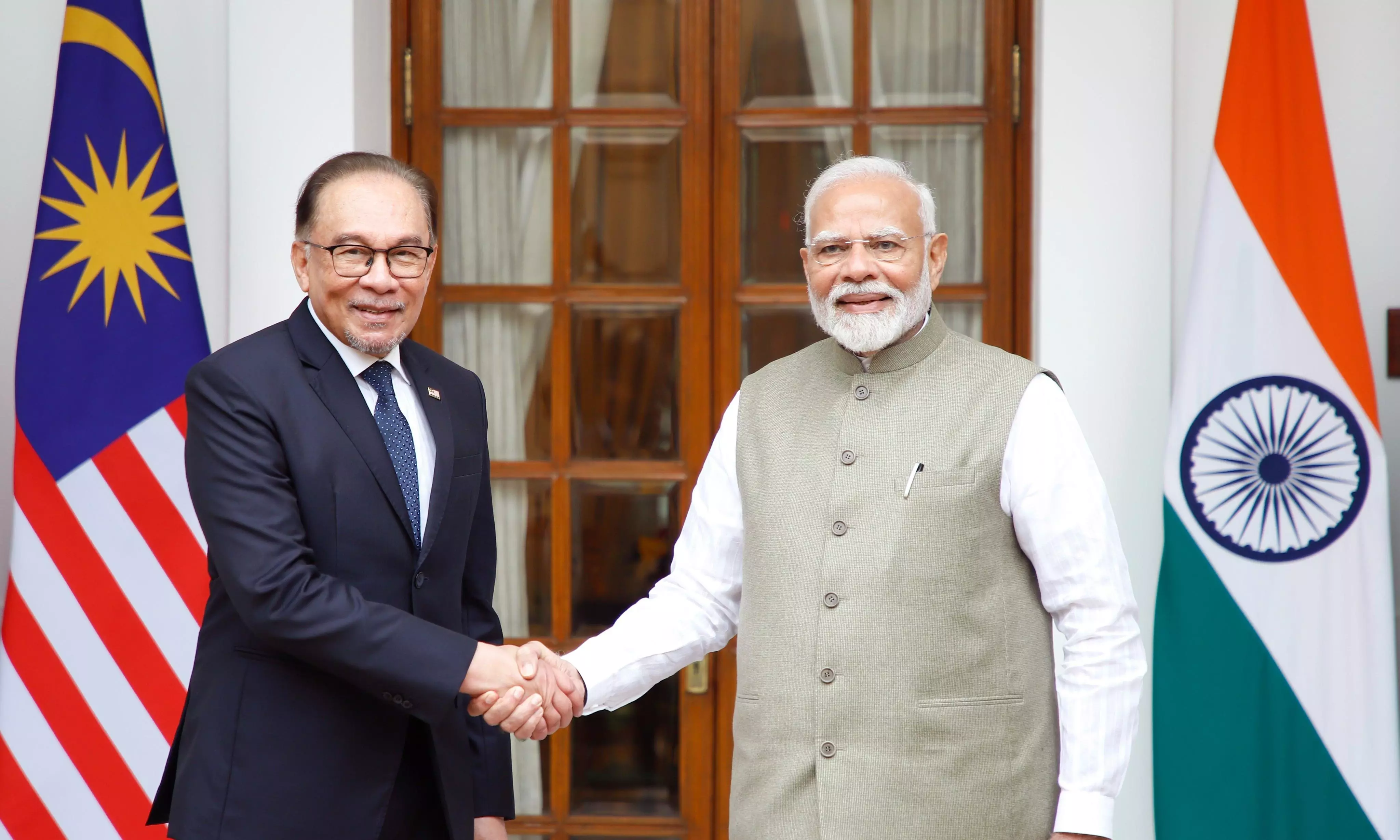PM Modi and Malaysian Prime Minister Ink 8 Pacts

New Delhi: After talks filled with "great warmth" between Prime Minister Narendra Modi and his visiting Malaysian PM Anwar Ibrahim, both countries decided to elevate their ties to a comprehensive strategic partnership as well as bolster ties in fields ranging from defence to trade. Eight pacts were inked, including one for "recruitment, employment and repatriation" of Indian workers in Malaysia that will see their rights being protected apart from access now to work in all sectors open to foreigners there, which was not the case previously.
During the talks, both nations decided to establish a digital council for digital technology cooperation and a startup alliance. In view of Chinese military assertiveness in the region, both nations also discussed the situation in the South China Sea.
In his media remarks after the talks, Mr Ibrahim referred to Mr Modi as his "brother" and said a "no-holds barred" discussion on various issues, including "sensitive" issues, was conducted between the two leaders as "true friends". The Malaysian PM also mooted "military collaboration and joint operations" to safeguard both countries borders.
In his remarks, Mr Modi spoke about the defence cooperation between both nations as bearing "new possibilities". He said the two nations are united in their approach to combat both "terrorism and extremism". He also mentioned how both nations are working to simplify visa procedures for the movement of people.
The Prime Minister also announced that 100 seats would be earmarked for Malaysian students to study various subjects, including cyber security at Indian institutions.
Talking about closer cultural linkages, Mr Modi termed the three million people of Indian origin living in Malaysia as a "living bridge" between both nations. He recalled how when the historical "Sengol" (staff symbolising righteousness) was installed in the new Parliament building last year, there was huge interest in Malaysia. He also said that an Ayurveda chair will be established at the Tunku Abdul Rahman University and a (ancient Tamil saint) Tiruvalluvar chair at the Malaya University.
Mr Modi also referred to the rapid pace of progress in bilateral ties in the past two years since Mr. Ibrahim became the Prime Minister of Malaysia.
At a special ministry of external affairs briefing on the Malaysian PM visit, the secretary (East) Jaideep Mazumdar referred to the last few years prior to that as a "lost opportunity", an obvious reference to the tenure of anti-India hawk Mahathir Mohamad as Prime Minister that saw bilateral relations plummet sharply. He pointed out how Mr Ibrahim in 2019 had attended the Raisina Dialogue conference in New Delhi and had then called on Mr Modi, following which both leaders developed a close rapport.
At the briefing, Mr Mazumdar said that India's state-owned Hindustan Aeronautics Limited, which has opened an office in the Malaysian capital Kuala Lumpur, may look at supplying a range of aircraft to Malaysia, including transport and reconnaissance.
Asked whether the extradition of radical preacher Zakir Naik from Malaysia to India was discussed, the foreign ministry merely said many issues were discussed between the two sides.
The foreign ministry said India has offered to send two lakh metric tonnes of non-Basmati rice to bolster Malaysia's food security. With bilateral trade between the two countries having touched $20 billion and Malaysian investment in India touching $5 billion, Mr Modi also sought the review at the earliest of the comprehensive economic cooperation agreement between both nations.
According to the foreign ministry, the Prime Minister expressed satisfaction that bilateral trade can now be settled in the respective national currencies of both nations.
Mr Mazumdar said both leaders had directed the establishment of a task force on the new areas of cooperation identified during the visit and to submit a report within three months. He also spoke about fintech startups now driving financial ties between both nations. Both nations also plan to connect India's UPI with Malaysia's Paynet digital payment platform.
In his remarks, the Malaysian Prime Minister described India as an "important and great nation" and his visit as an "important personal" one. Mr Ibrahim said both countries have "multicultural, multi-religious and multi-racial societies". He said the talks on Tuesday covered areas ranging from semiconductors, digital to trade, investment, agriculture, defence, education and culture.
Other pacts inked between the two nations are in the areas of Ayurveda, digital technologies, culture, tourism, governance reforms, youth and sports and financial services. A report on investment by a CEO forum prepared jointly by trade bodies of both sides was also presented to both the leaders.

